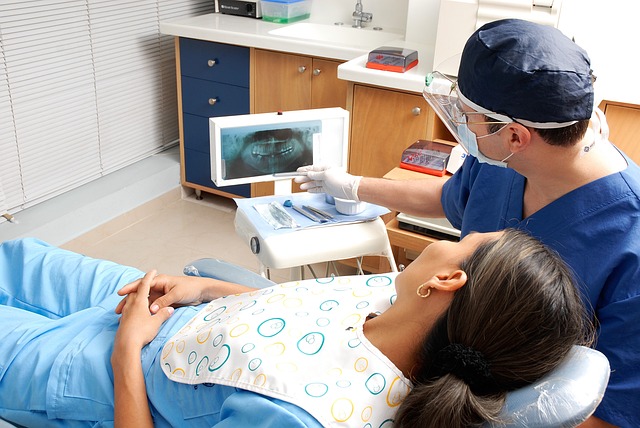Senior Dental Care in 2025: How to Find the Right Professional
Finding the right dentist for seniors is crucial for maintaining oral health and comfort. In 2025, it’s important to consider experience with age-related dental issues, accessibility, and personalized care. Learn how to choose a trusted dental professional who meets your unique needs and ensures the best possible care.

What Makes Senior Dental Care Different from General Dentistry?
Senior dental care tips begin with understanding that older adults face distinct oral health challenges. As we age, natural changes occur in our mouths, including decreased saliva production, increased medication use that affects oral health, and higher risks of gum disease and tooth loss. Seniors often deal with conditions like dry mouth, which can lead to increased cavity formation and gum problems. Additionally, many older adults have existing dental work that requires specialized maintenance or replacement. A dentist experienced in geriatric care understands these complexities and can provide appropriate preventive measures and treatments tailored to aging patients.
How Do You Identify Experience with Age-Related Dental Issues?
Choosing a dentist for seniors requires evaluating their specific experience with geriatric patients. Look for dental professionals who have additional training in geriatric dentistry or who actively treat a significant number of older patients. Ask potential dentists about their experience with common senior dental issues such as periodontal disease management, denture fitting and adjustment, and working with patients who have medical conditions like diabetes or heart disease. Experienced senior dentists understand how systemic health conditions interact with oral health and can coordinate care with other healthcare providers when necessary.
What Accessibility Features Should You Look for in a Dental Office?
Dental health for older adults often involves physical considerations that younger patients may not face. When evaluating dental offices, look for accessibility features such as wheelchair-accessible entrances, parking close to the building, and examination rooms that can accommodate mobility devices. The office should have comfortable seating in waiting areas and staff trained to assist patients with mobility limitations. Additionally, consider the office’s scheduling flexibility, as seniors may need longer appointment times or prefer certain times of day for their visits.
How Important Is Communication Style in Senior Dental Care?
Finding trusted dental professionals means identifying those who excel in patient communication, particularly with older adults. The right dentist should take time to explain procedures clearly, answer questions patiently, and involve seniors in treatment decisions. They should be comfortable discussing how treatments might interact with existing medications and be willing to communicate with other healthcare providers when necessary. Look for dental professionals who demonstrate respect for their senior patients’ concerns and preferences, as this communication style directly impacts treatment success and patient comfort.
What Role Does Technology Play in Modern Senior Dentistry?
In 2025, modern dental technology significantly enhances senior dental care. Digital X-rays reduce radiation exposure and provide clearer images for better diagnosis. CAD/CAM technology allows for same-day crowns, reducing the number of visits required. Laser dentistry can minimize discomfort and healing time for gum treatments. However, the key is finding a dentist who uses technology appropriately for senior patients, explaining procedures clearly and ensuring that technological advances genuinely benefit the patient’s experience and outcomes rather than simply showcasing the latest equipment.
What Should You Expect in Terms of Costs and Insurance Coverage?
Personalized senior dentistry often involves understanding the financial aspects of dental care for older adults. Many seniors are on fixed incomes and rely on Medicare, which typically doesn’t cover routine dental care. Some dental practices offer senior discounts or payment plans to help manage costs. Preventive care visits typically range from $75-200, while more complex procedures like crowns can cost $800-1,500, and dentures may range from $600-3,000 depending on the type and materials used. It’s important to discuss all costs upfront and explore options like dental insurance supplemental plans or discount programs specifically designed for seniors.
| Service Type | Typical Cost Range | Insurance Coverage | Payment Options |
|---|---|---|---|
| Routine Cleaning & Exam | $75-200 | Limited Medicare coverage | Most accept dental insurance |
| Fillings | $150-400 per tooth | Varies by plan | Payment plans available |
| Crowns | $800-1,500 | Partial coverage typical | Senior discounts common |
| Dentures (Complete) | $600-3,000 | Limited coverage | Financing options available |
| Periodontal Treatment | $200-800 per quadrant | Some insurance coverage | Sliding scale fees possible |
Prices, rates, or cost estimates mentioned in this article are based on the latest available information but may change over time. Independent research is advised before making financial decisions.
The landscape of senior dental care continues to evolve, with an increasing focus on preventive care and maintaining quality of life through good oral health. The best dental professionals for seniors combine clinical expertise with compassion, understanding that dental visits can be challenging for older adults due to physical limitations, anxiety, or past negative experiences. By taking time to research and visit potential dental providers, seniors can find professionals who will partner with them in maintaining their oral health throughout their golden years. Remember that the right dental professional should make you feel comfortable, respected, and confident in the care you’re receiving.
This article is for informational purposes only and should not be considered medical advice. Please consult a qualified healthcare professional for personalized guidance and treatment.




